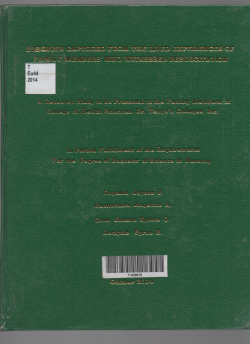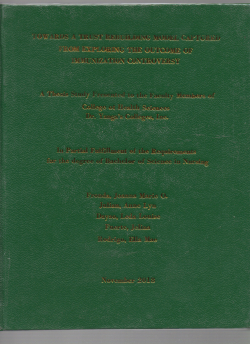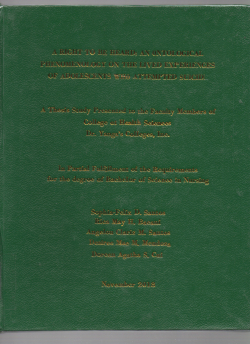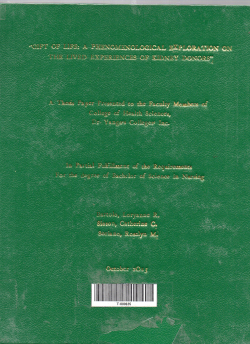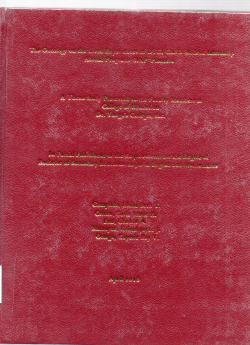A phenomenology on the ontology of living in darkness:essences captured from the lived experiences of blind patients
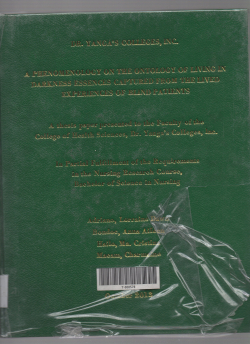
Type
Thesis
Authors
Category
CHS
[ Browse Items ]
Subject
blind patients;living in darkness;lived experiences; phenomenology
Abstract
Blindness is defined as the loss of vision of the outer world. In this sense, blindness is literally living in the darkness. Such entails a lot of struggles and limitations in almost all facets of life. In relation with this, the researchers conducted this study to extensively explore the lived experiences of blind patients. Specifically, this aimed to understand the journey of a sighted individual who eventually became blind. A descriptive phenomenological approach was utilized by the researchers. Employing purposive sampling. 10 informants , as guided by the data saturation,were selected based on the following criteria:(1) not congenitally blind;(2) has been blind for 5 years or more and (3) no other disabilities aside from blindness. Informant observation and in depth semi-structured interviews which lasted 20 to 60 minutes were made use in data collection. The researchers utilized video and sound recorders to capture essences from interviews . In order to establish rigor or validity of the study,researchers utilized"member checking" wherein,the researchers ensured the informants experiences were reflected on the research results. Consequently data from the interview transcripts were analyzed using the Collaizzi's data analysis framework. Five emergent themes were formulated that conclusively reflect the lived experiences of blind patients namely: Broad Negativism about self represents the negative thoughts and ideations about oneself after becoming blind and the darkness that the informants had to go through on their way to coping and recovery.Losing Relations describes the feeling of rejection and not being accepted by the other people.,Inevitable Change in Daily Living talks about the significant changes that comes with blindness ,Notion of Betterment sfter Blindness describes their hope and enthusiasm to live despite their situation ,and Derived Complementing Outcome signifies the positive outlook that they can still make a difference and that they can also inspire others,thus BLIND. Based on the findings,the researchers therefore concluded that coupled with faith in God and hope plus belief in oneself ,one can readily adapt and be able to move forward and continue to live life to the fullest.
Number of Copies
1
| Library | Accession No | Call No | Copy No | Edition | Location | Availability |
|---|---|---|---|---|---|---|
| Main | 578 | T Ad84 2013 | 1 | Yes |
